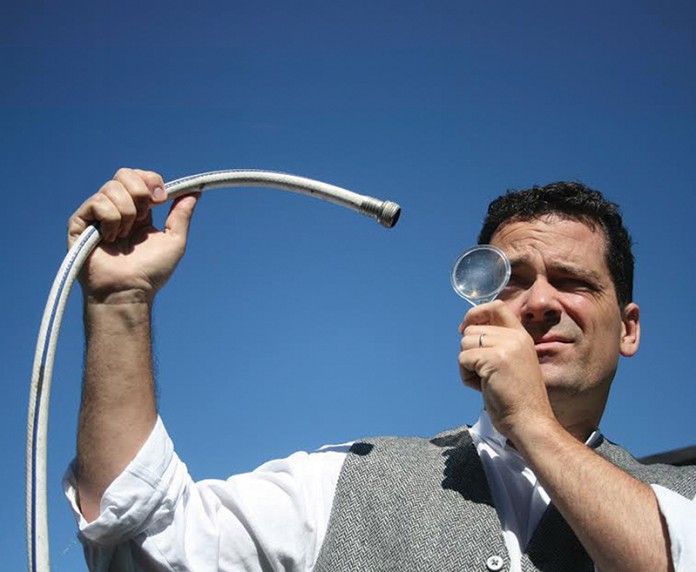The International Water Association (IWA) hosts forty-nine ‘specialist groups’ through which exceptional researchers and practitioners generate cutting edge solutions. The organisation -as demonstrated throughout this magazine – seeks out and celebrates the achievements and innovations of extraordinary individuals. We honour first-rate minds who devote their careers to advancing the Sustainable Development Goals (SDGs).
Yet now we confront a quiet threat to future progress: the ‘water expert’.
Wait, you protest. Why is expertise a problem? Isn’t that what readers of The Source seek? What is IWA if not an assembly of water experts sharing practical intelligence? Would global needs be met if taps and treatment plants were run by amateurs?
To answer these questions, start by Googling ‘water expert’. Within 0.53 seconds the algorithm yields 182 million unique results, roughly one per fifteen humans. This suggests the term is little more than a marketing tool: a status badge through which universities, charities and businesses advertise superior services, trade ideas, or sell themselves.
But unlike degrees, patents or article citations, no accountable entity confers this prestige. One must merely amend a LinkedIn profile, update a CV, and presto. ‘Water experts’ crown themselves.
The title might be harmless, except it erects a barrier between people who share a common resource. It introduces an artificial water hierarchy — producers over consumers, authorities over beneficiaries, developers over users – in which the insulated and self-chosen few decide (often without asking) how to manage water of, by and for the many. This undemocratic mindset leads to carelessness and waste. The danger lies not in any sinister intent, since the water expert wants only the very best outcome for all. The risk comes from the assumption that he or she must know exactly what that is.
Water defies such absolute certainty. It resists commands and controls. Above all, water proves inextricable from people and place. Soon the water management expert discovers the only resource to be managed is human. Humans demand not coercion but persuasion. And ironically, a water professional’s persuasive influence runs inversely to any claims of expertise.
Why? Steeped in years of education, training, experience, and holding a command of facts and figures, the expert clings to the safety and security of past models: idealised abstractions, rational detachment, formulaic equations and previous tests. These building blocks of wisdom leave no room for the evolution of new syntheses or creative friction.
Oblivious to local contours, natural context and the wisdom of crowds, the water expert’s hammer seeks only nails. Locked in a prison of analysis, unwilling or unable to ask uncomfortable questions, or articulate the words “I don’t know”, the expert isolates himself from potential allies.
The more elevated the expert, the higher the risk. But it’s not just water that humbles. ‘Medical experts’ are contradicted two-thirds of the time. ‘Political experts’ bet against Trump or Brexit. ‘Intelligence experts’ squandered the Cold War’s end. ‘National security experts’ misread 9/11. ‘Financial experts’ ignored economic collapse. ‘Nutritional experts’ conflated risks by fats vs. sugar. ‘Foreign policy experts’ missed the Arab Spring. Complexity and uncertainty are the rule.
But without ‘water experts’ who will emerge in the vacuum to lead?
With each issue, this magazine is finding out. The most interesting and effective water professionals tend to be those with far more questions than answers. With humility and curiosity, they engage in creative destruction.
They use research crowbars to pry up floorboards, crack open ceilings and tear down walls between specialties and entire sectors. Rather than build ivory towers, they forge links between water and religion, nanotechnology, pandemics, women, gene sequencing, finance, energy, borders, contraband, games, emissions, and urban resilience. Above all, they embrace the emerging water-people nexus.
Never believe that the SDGs will be met by ‘international water experts’. Indeed, water will be resolved only after we abandon such counter-productive titles and catalyse change from below.






